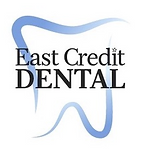Regular exams or checkups are important to keep your teeth and gums healthy. If you have good oral hygiene habits and a healthy mouth, your dentist will probably suggest professional teeth cleaning at least twice a year. If you have gum disease or if you build up plaque and tartar easily you may have to be seen every 3 or 4 months. Many dental insurance policies will cover two cleanings per year, but few people take full advantage of their benefits.
If cavities aren’t treated, they get larger and affect deeper layers of your teeth. They can lead to a severe toothache, infection and tooth loss. Regular dental visits and good brushing and flossing habits are your best protection against cavities and tooth decay.
Bleeding gums may be a sign of poor dental hygiene. Gums become inflamed and bleed when there’s a build up of plaque along the gum line. Plaque is a sticky film containing bacteria that covers your teeth and gums. And if you don’t brush or floss enough, the bacteria can spread and cause tooth decay or gum disease.
Both electric and manual toothbrushes are effective at cleaning teeth if you use proper technique and brush long enough. Overall, an electric toothbrush may make brushing easier, resulting in better plaque removal. Talk with your dentist if you have questions about which toothbrush might be best for you.
You should bring your child in for their first visit just before their first birthday.
First visits are mostly about getting kids used to the dentist’s chair and educating parents about how to care for baby’s teeth. If your child has transitioned from the bottle to cup and doesn’t snack or drink in the middle of the night, you get a one-year pass, until age 2.
These are some of the things we need to know at your first appointment
1) Full list of all medications or vitamins you are taking.
2) Home and work addresses and information.
3) Any medical conditions that might affect your ability to be comfortable in the dental chair.
4) All dental insurance information for both you and your spouse.
How often you need to have x-rays depends on your oral health. A healthy adult who has not had cavities or other problems for a couple of years probably won’t need x-rays at every appointment. If your dental situation is less stable and your dentist is monitoring your progress, you may require more frequent x-rays. If you are not sure why a particular x-ray is being taken, ask your dentist. Remember that dental x-rays deliver very little radiation; they are a vital tool for your dentist to ensure that small problems don’t develop into bigger ones.
We have excellent methods to help reduce anxiety at your dental appointments such as anesthetics that ensure you will not feel anything during your appointment and nitrous oxide or laughing gas that helps reduce anxiety. There are also a number of other ways of reducing anxiety before your appointment such as:
Share your fears. If you’re tense or anxious, tell your dentist and the dental staff. Expressing your concerns will help us adapt the treatment to your needs.
Focus on breathing regularly and slowly during dental procedures. When people are nervous they tend to hold their breath, which decreases oxygen levels and further increases feelings of panic. As in some meditation techniques, a focus on slow, regular breathing helps reduce stress levels.
Listen to some tunes or TV. If the sound of the drill bothers you, bring along your favorite music and earphones. We also have TV’s in our treatment rooms to help distract you.
Watch what you eat and drink, avoid caffeine before a dental appointment. Eat high-protein foods which – unlike sugary foods – produce a calming effect.
Use hand signals. Empower yourself by agreeing on hand signals to communicate with your dentist. When you feel uncomfortable, signal the dentist to ease off or stop the procedure.
Choose a low-stress appointment time. Select a time for your dental visit when you’re less likely to be rushed or under pressure. This might mean an early-morning appointment.
Yes! We offer direct billing for insurance. If you have questions about the availability for payment plan options, please contact our office directly.
Do you have additional Questions for our Mississauga Dental Office?
Our Mississauga dental team is here to help you find the best dental services in Mississauga. Our professional and compassionate staff understand the needs of our patients in a comfortable and relaxing environment.
